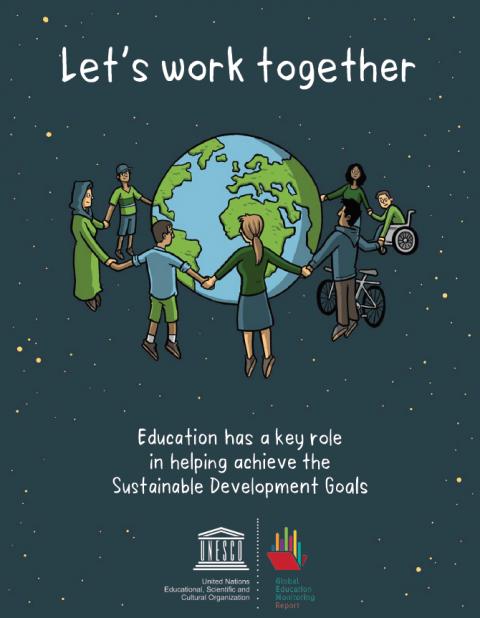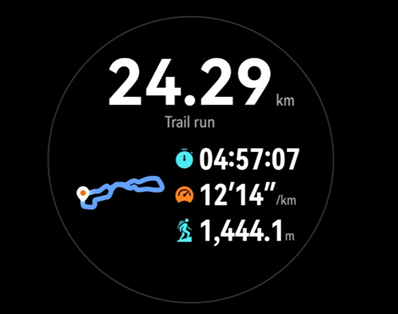Sustainable Development Education
Introduction
Programme of the United Nations Decade of Education for Sustainable Development
Introduction: United Nations Resolution on Education for the Decade of Sustainable Development 2005-2014
United Nations The General Assembly announced the implementation of the United Nations Decade of Sustainable Development Education in the ten years from 2005 to 2014, and requested governments around the world to integrate sustainable development education into the education strategies and action plans of all relevant levels in their countries during this decade. middle.
As the leading agency for the 10-year bill, UNESCO is required to provide consultation to the United Nations and other relevant international organizations, governments, non-governmental organizations and other relevant personnel who formulate the draft international implementation plan for the 10-year bill , It will always keep in mind the relationship between education for sustainable development and important international education tasks, especially the Dakar action plan adopted by the United Nations Literacy Decade (UNLD) World Education Forum.
The UNESCO Executive Committee approved the ten-year education proposal for the Decade of Sustainable Development at its 166th meeting in April 2003, and supported the ten-year proposal with UNESCO. The action plans for the next biennium are combined.
This article provides an outline based on which a draft of the United Nations Decade of Sustainable Development Education International Implementation Plan can be formulated through consultation with the United Nations and other partners.
Part 1 describes in detail the characteristics of education for sustainable development and clarifies its relationship with other major international education programs and important tasks. This emphasizes the interaction between sustainable development and education, as well as some key issues such as poverty alleviation, gender equality, health promotion, conservation and protection of natural resources on which society and economy depend, rural reform, human rights, peace, international understanding , Cultural and linguistic diversity, and ICT applications.
Part 2 describes the cooperative approach to develop a draft international implementation plan for DESD. This identified a series of collaborators on a local, national, regional and global scale. Their cooperation will ensure the successful implementation of ten-year educational activities and the greatest impact these activities have on global education policies, education plans and education work. Very necessary. It also lists a series of strategies that can promote collaborators' participation, sense of ownership and investment in the decade of education. The focus is on encouraging local enthusiasm and ensuring that national, regional, and global structures can guide the development of local enthusiasm.
Part 3 summarizes the full text with an activity proposal. The purpose of this proposal is to urge the international community to prepare for DESD from July 2003 to December 2005. These are organized from two aspects, (i) communication and support, and (ii) cultivating motivation, partnership and support for ten-year education.
Educational Perspectives
Overview
The Rio Declaration at the 1992 World Conference on Environment and Development started with these words:
Human beings are at the core of sustainable development. They are entitled to a healthy and rich life in harmony with nature.
The "Johannesburg Declaration" at the World Summit on Sustainable Development in 2002 was built on this enthusiasm, and expressed a promise of world leaders-"to build a humane and equal The international community understands all human needs for dignity."
Achieving the Millennium Development Goals
The Millennium Development Goals provide a way to achieve sustainable development. Sustainable development is a dynamic and evolving concept that contains many aspects and many interpretations, and reflects some localized and culturally related imaginations, that is, development "satisfies needs, but does not satisfy them for future humans." The required capacity poses a hazard.” The Millennium Development Goals provide international action goals that turn these imaginations into reality through the following actions: eradicate poverty, promote child, maternal, and sexual health; expand the availability of education and emphasize gender equality in education; and Establish a national strategy for sustainable development.
Although the world is making great progress, these progresses are uneven across regions. Some regions such as Central Africa, South Asia and many small island countries have not yet seen the benefits of globalization. . Therefore, although significant results have been achieved in health promotion, some new issues such as HIV/AIDS are still a problem in the survival and average life expectancy of newborns in more and more countries and societies in the world. All over the world, unsustainable development processes bring continuous pressure on natural resources, and unsustainable production and consumption, especially in developed countries, pose a threat to the fragility of the natural environment and high levels of poverty in other regions.
Therefore, UN Secretary-General Kofi Annan pointed out: In this new century, our biggest challenge is to accept this very abstract-sounding idea—sustainable development—and serve people all over the world. Turn this idea into reality. ①
Education: Realizing abstraction
Realizing abstraction and developing the ability of individuals and society to work sustainably for the future is a fundamental educational undertaking. In fact, the four principles of human sustainable development clarified at the World Summit on Sustainable Development in 2002 reflect the four pillars of education described in the "Dellore Report":

Development requirements:
Education provides the following capabilities: recognition of challenges, collective responsibility and constructive cooperation, decisive action, the indivisibility of human dignity, learning to understand, learning to live together, learning to do, and learning to do.
Therefore, education is the main force for sustainable development and transformation and for improving people's ability to transform social ideals into reality. Education not only provides scientific and technical skills, but also provides motivation, certification, and social support for the pursuit and application of these skills. The international community strongly believes that we need to cultivate the values, behaviors and lifestyles needed for a sustainable future through education. Education for sustainable development has begun to be seen as a process of learning how to make decisions in consideration of the economic, ecological and equality of all societies. Cultivating this kind of future-oriented thinking ability is a key task of education.
This brings a new perspective to education, which helps people of all ages to better understand the world they live in and understand the complexity and interconnection of some issues that threaten the future of mankind, such as Poverty, waste, environmental degradation, urban degradation, population growth, health, conflict and human rights violations. This new vision of education emphasizes a holistic, interdisciplinary approach to developing the knowledge and skills needed for a sustainable future, as well as the changes that need to be made in values, behaviors, and lifestyles. This requires us to reposition the education system, education policy, and education work so that everyone can make decisions and actions in a way that is in line with culture and local conditions, and solve various problems that threaten our common future. In this way, people of all ages can make various imaginations for a sustainable future, evaluate these imaginations, and carry out creative collaborations to realize these imaginations.
Four aspects
Sustainable development education has four main areas, reflecting different goals and targets: the promotion and improvement of basic education, the repositioning of existing Education to emphasize sustainable development, cultivate public understanding and awareness of sustainability, and training.
1. Basic education
There are great differences in the content and duration of basic education around the world. Access to basic education is still a problem for many people, especially for girls and illiterate groups composed mainly of adult women. However, just improving the basic abilities of words and numbers like teaching cannot greatly promote sustainable development. Basic education needs to focus on sharing knowledge, skills, values and opinions in the process of lifelong learning, and it should live a sustainable life and support citizens to live in a sustainable way. This basic education method also supports public participation and social decision-making, while helping society to achieve its sustainability goals.
2. Reposition the existing education plan
From kindergarten to university, rethink and revise education so that education clearly pays attention to the knowledge, skills, and concepts related to sustainability The cultivation of values and values is very important for the present and future society. This means reviewing existing courses and examining their goals and content for fostering interdisciplinary understanding of social, economic and environmental sustainability. It also requires inspections of recommended and enforced education, learning, and assessment methods to develop lifelong learning skills. These skills include creative and critical thinking, oral and written communication, collaboration and cooperation, conflict management, decision-making, problem solving and planning, the correct application of ICT, and the ability to fulfill civic duties.
3. Cultivate the public awareness and concept of sustainability
Cultivate the social, economic and social, economic and social The transformation of global awareness of environmental issues into an understanding of the root causes of these issues also requires the establishment of a local, national, and global perspective on the meaning of sustainable life and work. Therefore, achieving the Sustainable Development Goals requires extensive social education and a reliable media dedicated to cultivating knowledgeable and active citizens.
4. Training
All workers can contribute to local, regional and national sustainability. Therefore, the commercial and industrial fields are the main places for vocational training and professional training, so that all workers can have relevant and necessary knowledge and skills. These knowledge and skills can enable them to make decisions and complete their work in a sustainable way.
Goals
Link the Decade of Education for Sustainable Development (DESD) with other important global education tasks
The core content of the WSSD implementation plan is mainly Policies, projects, mobilization of related resources and establishment of organizational structures. The United Nations Decade of Sustainable Development Education provides an opportunity: to put the human factor at the forefront to promote the implementation of the plan. Only education can provide the above-mentioned understanding, values, commitments, and skills, and these will support the technical elements of the plan, reminding everyone—children, youth, and adults—that the sustainable development agenda is in fact relevant to all of us. Relevant agenda. This involves our way of life, our respect for the lives of others-whether far or near, now or in the future-and our attitude towards the world around us.
Sustainable development requires a comprehensive approach: Education for sustainable development is related to other educational programs and issues. This is not a brand-new plan, but a call to reposition education policy, education plan and education work so that education can play its role in cultivating all members of society to collaborate and build a sustainable future.
Therefore, the focus on DESD activities should be in the direction of support, communication and building relationships, and help all educators to incorporate sustainable development issues and goals into their own plans. UNESCO is responsible for coordinating two major education programs in the world: Education for All (EFA) and the United Nations Literacy Decade (UNLD). EFA's coordination work was determined at the World Education Forum in 2000, but it originated ten years ago, after the Jomtien Conference (1990). UNLD started in 2003 and is in the initial stage of implementation. Therefore, from the perspective of effective management and maximum impact, it is very necessary to coordinate DESD with EFA and UNLD.
It is clearly stated in the WSSD implementation plan that the goals and strategies of these plans should be combined with DESD. First of all, the WSSD implementation plan recognized the EFA goals and cited the "Dakar Program of Action" to elaborate on education development issues. Second, it recognized the education-related goals of the Millennium Declaration.
The Dakar Action Plan regards education as the “key” to sustainable development, especially in areas where poverty has been reduced or alleviated. The "International Strategy for the Implementation of the Dakar Educational Program of Action for All" issued in 2002 regards education as the key to equality and sustainable development, and regards education as part of the economic and social infrastructure for sustainable development" (p.8) It also advocates extensive cooperation among all relevant partners so that the education strategy can be used as a platform for sustainable development to establish peace, hope, stability, tolerance and mutual understanding" (p.25).
Similarly, the UN General Assembly UNLD resolutions and plans pointed out that "eliminating all illiteracy is the core of ensuring sustainable development, peace and democracy."
These meetings established a clear common foundation. . No matter from the viewpoint of sustainable development, or from the viewpoint of EFA and UNLD, education is a core strategy of sustainable development.
Theme
The common foundation still exists among the key issues of ESD, EFA and UNLD. These issues constitute the priority tasks of the plans and actions that support the DESD goals, including:
Poverty eradication: All three plans indicate that poverty alleviation is the key to development. However, there is an important difference between them. EFA and UNLD regard poverty alleviation as a framework within which development actions are taken, while DESD regards it as a key pillar supporting sustainable development (appropriate economic development). ESD has room for cooperation with EFA and UNLD to make this broader view of development a standard. These three plans all believe that education should recognize the complexity of poverty and how to alleviate it, rather than use education as a means to increase income.
In addition, poverty alleviation is a core issue for all the Millennium Development Goals that recognize the issues of gender, education, health, and environmental protection in sustainable human development. This makes the issues of gender equality, health and resource protection, which are the foundation of social and economic development, important concerns in education.
Gender equality: This forms the basis of a goal in EFA, which is described in one of EFA’s twelve strategies. The United Nations General Assembly also identified it as one of the reasons for the establishment of the UNLD program. In the WSSD implementation plan, gender equality is regarded as the goal and prerequisite for sustainable development. Gender equality in formal education is also the main goal of the United Nations Women’s Education Program (UNGEL). All these plans emphasized educational methods and materials related to gender issues, as well as integrating gender perspectives into all educational actions.
Health promotion: Development, environment and health issues are closely related, reflecting the complex connection between social, economic, ecological and political factors that determine living standards and other aspects of social welfare that affect human health. Healthy people and a safe environment are important prerequisites for sustainable development. However, the education of many children and young people in the world has been affected by certain situations and behaviors, which destroy people's physical and mental conditions and make them unable to learn. Hunger, camp
Latest: Practical materialism
Next: Battle of Borodino








